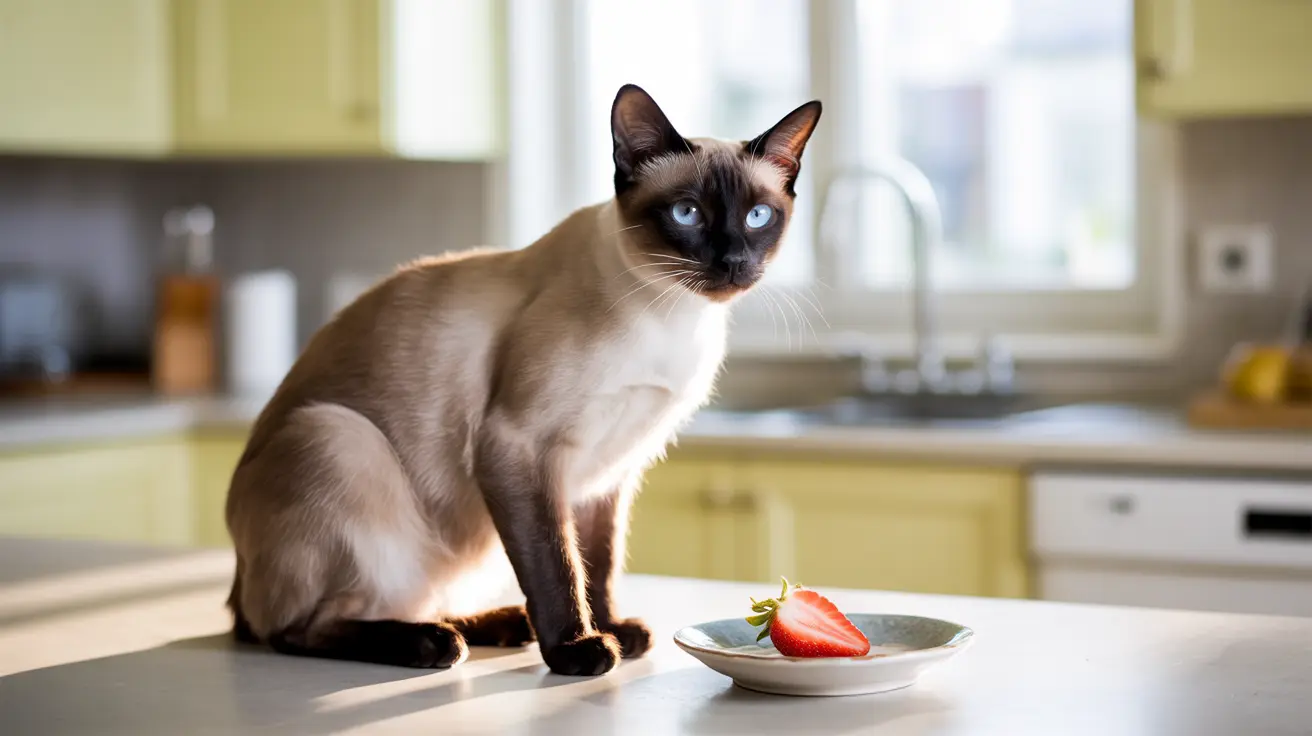If you've ever wondered whether your feline friend can safely enjoy strawberries, you're not alone. While cats are obligate carnivores who primarily need meat-based nutrition, many pet owners are curious about sharing fruits with their pets. Let's explore everything you need to know about cats and strawberries.
The Safety of Strawberries for Cats
The good news is that strawberries are non-toxic to cats and can be safely consumed in moderation. These bright red fruits contain various nutrients like vitamin C, fiber, and antioxidants. However, it's crucial to understand that cats' digestive systems aren't designed to process fruits efficiently, and they don't require these plant-based nutrients in their diet.
Nutritional Value and Benefits
While strawberries pack numerous health benefits for humans, their nutritional value for cats is minimal. Cats have evolved to obtain their necessary nutrients from meat sources. The vitamins and minerals found in strawberries, including:
- Vitamin C
- Potassium
- Folate
- Antioxidants
- Fiber
These nutrients, though beneficial, aren't essential for cats as they can synthesize most of these compounds naturally or obtain them from their regular meat-based diet.
Potential Risks and Concerns
While strawberries are safe, there are several important considerations before offering them to your cat:
Sugar Content
Strawberries contain natural sugars that cats' bodies aren't designed to process efficiently. Excessive sugar intake can lead to:
- Obesity
- Dental problems
- Diabetes risks
- Digestive issues
Digestive Issues
Some cats may experience gastrointestinal upset after consuming strawberries, including:
- Vomiting
- Diarrhea
- Abdominal discomfort
- Decreased appetite
Safe Feeding Guidelines
If you decide to offer strawberries to your cat, follow these important guidelines:
Preparation
- Thoroughly wash fresh strawberries
- Remove stems and leaves
- Cut into small, manageable pieces
- Serve plain without any additives or toppings
Portion Size
Moderation is key when feeding strawberries to cats. Limit portions to:
- One small strawberry or less per serving
- No more than a few servings per week
- Observe your cat's reaction after the first taste
When to Avoid Strawberries
Some cats should not be given strawberries, including:
- Overweight cats
- Diabetic cats
- Cats with sensitive stomachs
- Those with known fruit allergies
Frequently Asked Questions
Can cats eat strawberries, and are they safe for them to consume?
Yes, cats can safely eat strawberries in small amounts. The fruit is non-toxic to cats, but should only be given as an occasional treat due to its sugar content.
What are the potential health risks if my cat eats too many strawberries?
Excessive strawberry consumption can lead to digestive issues, including vomiting, diarrhea, and abdominal discomfort. The high sugar content may also contribute to obesity and dental problems.
How should I prepare and give strawberries to my cat as a treat?
Wash the strawberries thoroughly, remove stems and leaves, cut into small pieces, and offer a small amount. Start with a tiny portion to test for any adverse reactions.
Can I include strawberry leaves and stems in my cat's diet, or should I avoid them?
It's best to avoid feeding strawberry leaves and stems to cats. While not toxic, they can be difficult to digest and may cause gastrointestinal issues.
Why is it not recommended to make strawberries a regular part of a cat's diet?
Cats are obligate carnivores who require meat-based nutrition. Strawberries offer minimal nutritional benefits for cats and contain sugars that their bodies aren't designed to process efficiently.
Remember, while strawberries can be a safe occasional treat for cats, they should never replace any part of your cat's regular, balanced diet. Always consult with your veterinarian before introducing any new foods to your cat's diet, especially if they have existing health conditions.






